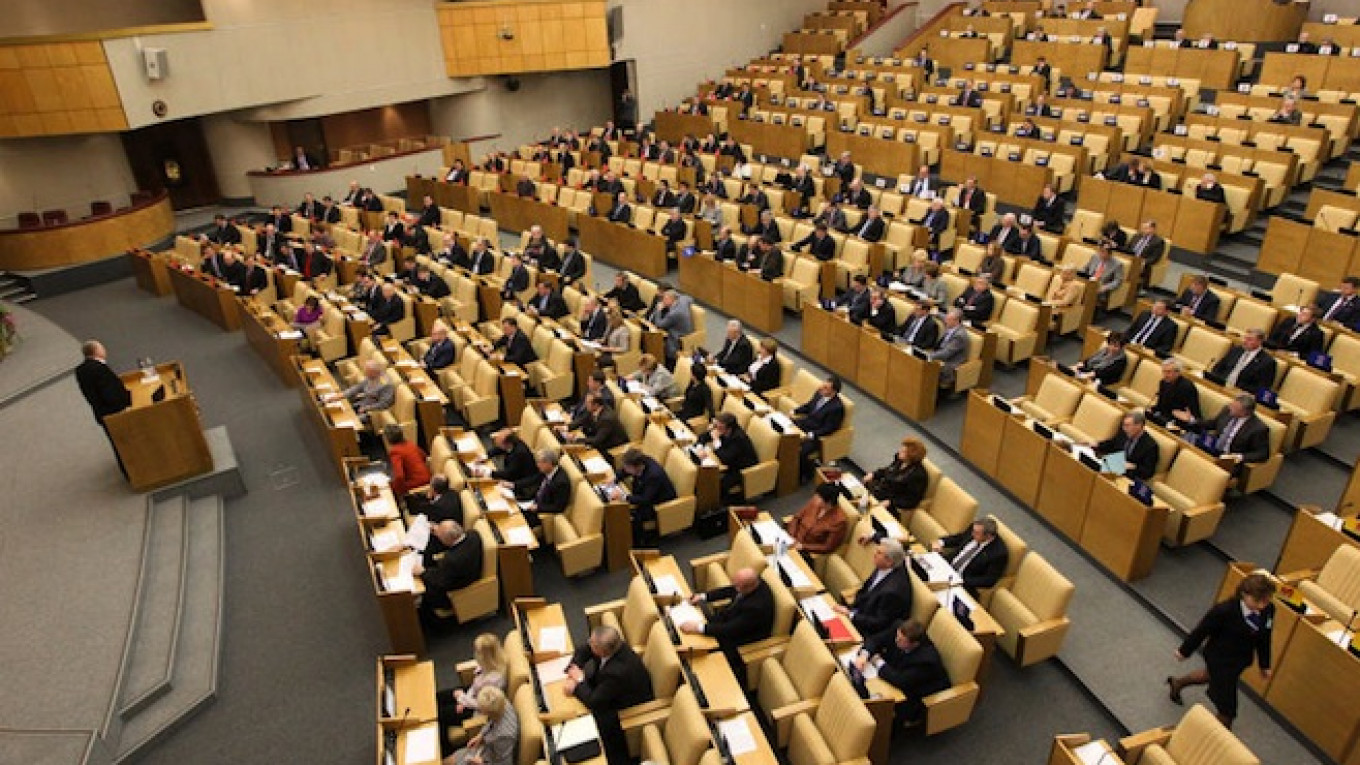A bill offering legal amnesty to Russians who willingly declare their foreign assets sailed through Russia's lower house of parliament on Friday, forcing companies and individuals to face a crucial question: to declare or not to declare?
Under the legislation, known as the "capital amnesty bill," businesses and citizens who declare their foreign assets to the Russian tax authorities between July 1 and Dec. 31 this year will get a free pass on a range of criminal, administrative and tax violations they may have perpetrated in relation to those assets.
The total volume of assets this would touch is vast: Analysts told The Moscow Times previously that the majority of large and midsized businesses in Russia have offshore business structures of some kind.
The bill passed Friday's third and final reading in the State Duma easily, with 344 deputies voting in favor and 81 against, the RIA Novosti news agency reported. It now only needs the approval of the upper house of parliament and President Vladimir Putin's signature to enter into law.
The initiative was spearheaded by Putin, who first voiced the idea of a "capital amnesty" during his annual address to the Federal Assembly last December.
One of the pillars of Putin's third presidential term is a campaign to repatriate the capital that has flowed out of Russia over recent decades, driven by businesses' efforts to evade taxes and, in many cases, protect their assets against the threat of hostile takeovers or appropriation by the authorities.
The bill has changed significantly since it was first proposed, however. Early schemes would have offered a blanket amnesty for all violations, but it later became clear that such a law could violate international anti-money laundering legislation.
In its final version, the law does not provide protection from prosecution for fraud, money laundering or other financial crimes.
Some analysts fear that the incentives of keeping assets out of the tax authorities' view is too tempting — and the punishment for not declaring them too weak — to make the bill effectual.
A Message from The Moscow Times:
Dear readers,
We are facing unprecedented challenges. Russia's Prosecutor General's Office has designated The Moscow Times as an "undesirable" organization, criminalizing our work and putting our staff at risk of prosecution. This follows our earlier unjust labeling as a "foreign agent."
These actions are direct attempts to silence independent journalism in Russia. The authorities claim our work "discredits the decisions of the Russian leadership." We see things differently: we strive to provide accurate, unbiased reporting on Russia.
We, the journalists of The Moscow Times, refuse to be silenced. But to continue our work, we need your help.
Your support, no matter how small, makes a world of difference. If you can, please support us monthly starting from just $2. It's quick to set up, and every contribution makes a significant impact.
By supporting The Moscow Times, you're defending open, independent journalism in the face of repression. Thank you for standing with us.
Remind me later.






